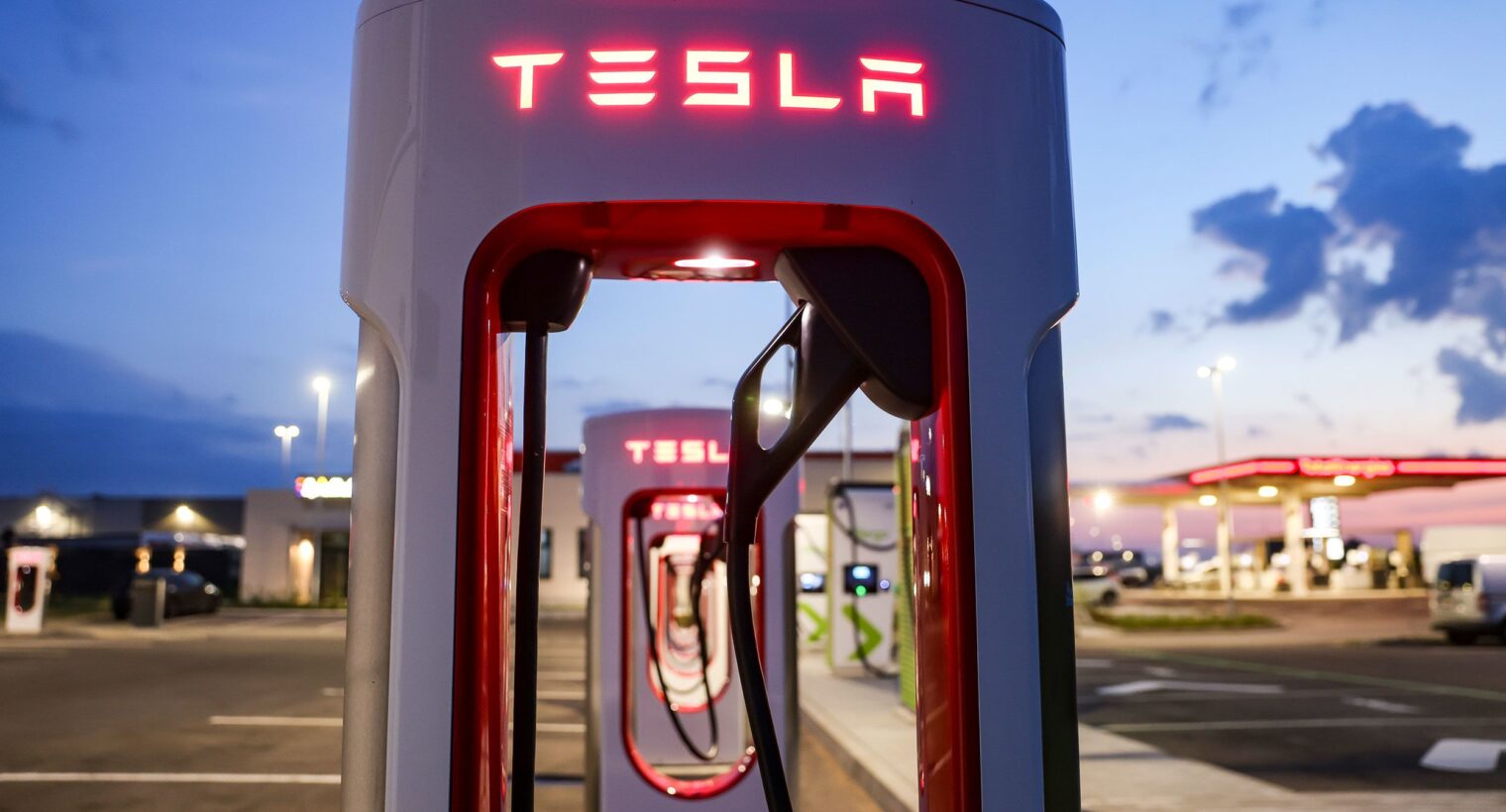This article is your complete guide to learning about the Cost to charge a Tesla vs. natural gas car. Electric vehicles (EVs) are being built on a more large scale in the US. This has gotten homeowners expressing more interest in the cost-effectiveness of EVs compared to traditional gas cars. For instance, a Tesla Model 3 with a 50 kWh battery may cost around $6.50 to fully charge. While the average driver spends about $49 on a tank of gas. Our blog aims to explain these costs by providing an in-depth guide to understanding the financial factors of owning a Tesla versus a gas-powered vehicle!
Here at The Energy Professor, we want to give you the information you need to not only save money on your energy bill but to also become more energy efficient. We hope find this post helpful! And makes it easier for you to know more about the cost to charge a Tesla vs. natural gas. Be sure to also check out our one-of-a-kind energy savings calculator!
The Energy Professor Electricity Rate Check Tool
How Much Does It Cost to Charge Your Tesla
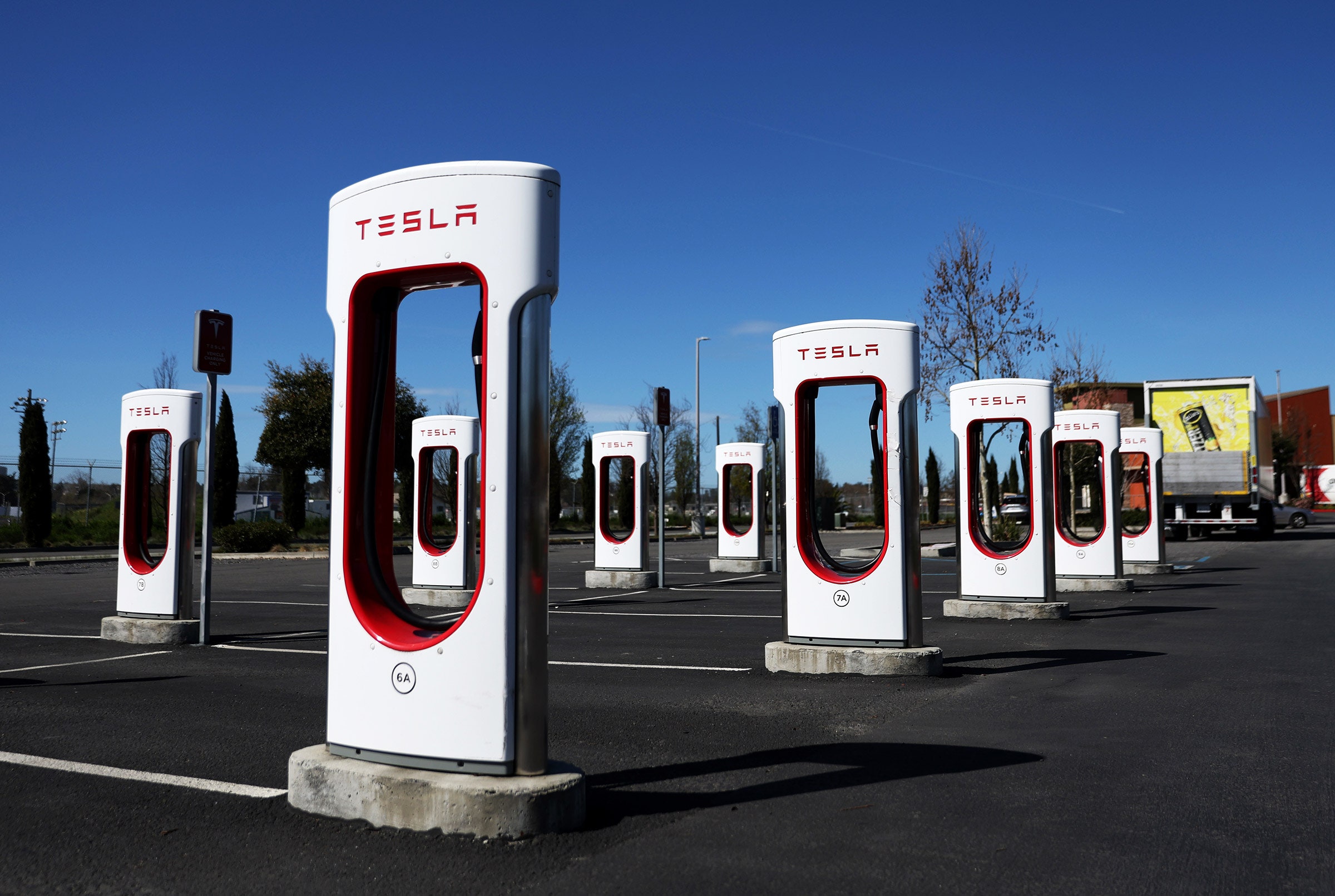
Charging a Tesla varies in cost depending on your local electricity rates and the Tesla model. For instance, a Tesla Model 3 with a 50 kWh battery may cost around $6.50 to fully charge at an average electricity rate of $0.13 per kWh, offering a range of about 263 miles. This cost is significantly lower compared to filling up a gas car’s tank! Understanding these charging costs is crucial for those considering the switch to an electric vehicle like a Tesla.
Tesla Charging Rates
- $6.50 and $13 to fully charge
When considering how much it costs to charge your Tesla, it’s essential to understand that the cost can vary based on factors such as your electricity rate and the model of your Tesla. On average, electricity costs around $0.13 per kWh in the United States. A typical Tesla battery, ranging from 50 kWh to 100 kWh, would therefore cost between $6.50 and $13 to fully charge.
How Much Does it Cost to Fill a Gas Tank?
- $42 and $56 for a full tank
In comparison, filling up a gas tank can be more straightforward but often more expensive. With the national average gas price hovering around $3.50 per gallon and a standard car tank holding about 12 to 16 gallons, a full tank can cost between $42 and $56. This price, however, fluctuates more than electricity rates and can vary significantly based on location and market conditions.
Related Post: Average Electricity Bill in Dallas, TX
Tesla Charging Rates by Model
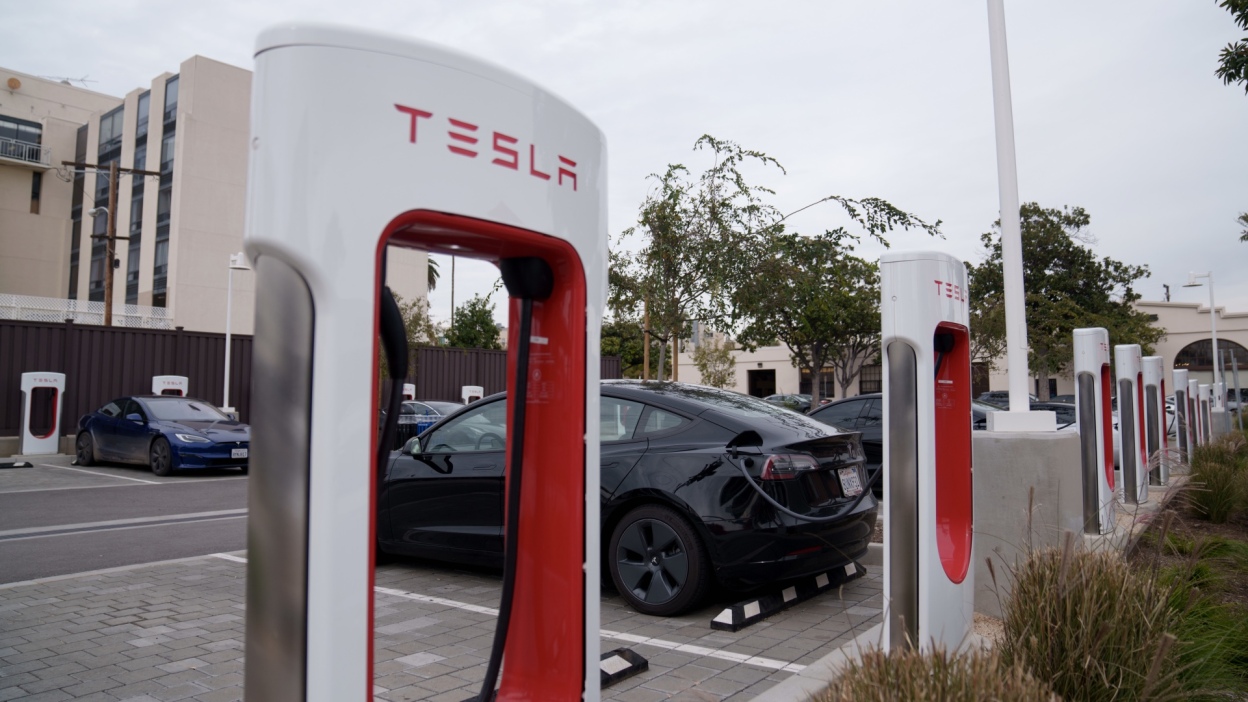
As we stated above, understanding how much to charge a Tesla varies notably by model. For the Tesla Model 3, the average cost of charging a Tesla sits at about $6.50 for a full charge with an electricity rate of $0.13 per kWh. The Tesla Model Y has a cost to fully charge of around $9.75. The Tesla Model X has an average cost to fully charge a Tesla at about $13. These figures underline the efficiency and economic benefits of Tesla’s diverse model range. Emphasizing the electric cars vs gas cars cost advantages!
How Much to Charge a Tesla Model 3
The Tesla Model 3, with a 50 kWh battery, typically costs about $6.50 to fully charge. This price can offer a range of approximately 263 miles.
Cost to Charge Tesla Model Y
For the Tesla Model Y, sporting a 75 kWh battery, the full charging cost is around $9.75, providing a range close to 316 miles.
How Much to Charge Tesla Model X
The larger Tesla Model X, with a 100 kWh battery, would cost about $13 to charge completely, offering a range of about 351 miles.
Related Post: Are Solar Panels Worth it in Dallas?
How Much Does it Cost to Fill a Gas Car?

Comparing electric cars vs gas cars, like EVs, filling a gas car can vary significantly. For a standard sedan, it typically costs around $42 to fill a 12-gallon tank at the current average gas vs electric price of $3.50 per gallon. Crossover SUVs, with larger 16-gallon tanks, may cost about $56. Larger SUVs, with their heftier 26-gallon tanks, can see costs up to $91. These figures starkly contrast with the average cost of charging a Tesla. This fuels the debate about are electric cars cheaper than gas cars and the potential savings of is Tesla charging cheaper than gas in the long run.
Sedan
For a sedan, with an average tank size of 12 gallons, it costs approximately $42 to fill up at current gas prices.
Crossover SUV
Crossover SUVs, with larger tanks of around 16 gallons, can cost around $56 to fill.
SUV
Larger SUVs, with tanks up to 26 gallons, can see a filling cost of about $91.
Related Post: 15 Tips to Save on Gas in the Winter
Tesla Charging Options
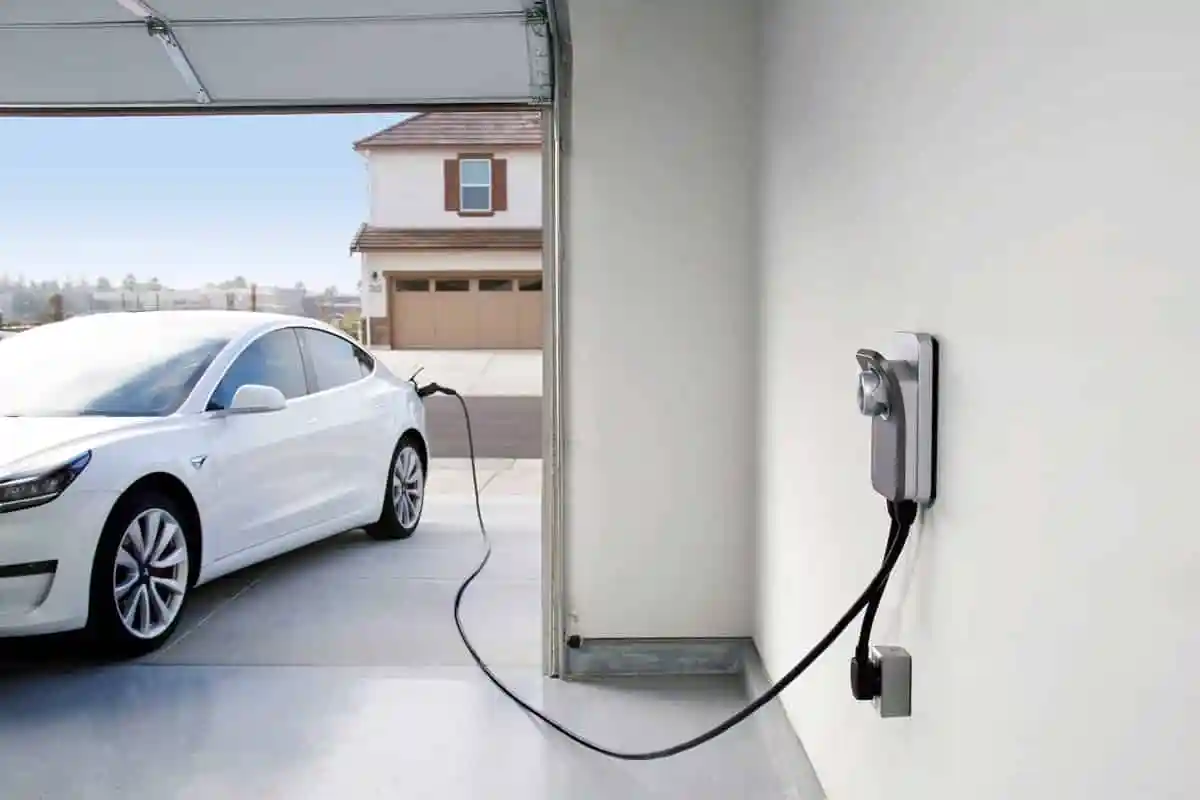
Tesla offers versatile charging options, impacting the cost of charging a Tesla vs gas! Charging at home is often seen as the most convenient, but varies depending on your electricity rate. However, how much it costs to charge your Tesla at home generally remains lower than public options. Public chargers and Tesla Superchargers offer quick charging solutions when you’re in a pinch. The average cost to fully charge a Tesla at home is substantially less than using Superchargers!
How Much Does it Cost to Charge a Tesla at Home?
- $6.50 and $13 to fully charge
How much charging a Tesla costs at home depends on your local electricity rate, but typically it’s significantly lower than public charging options.
Cost of Charging a Tesla in Public
- $14
Public charging stations can cost about $0.28 per kWh on average, making the cost to fully charge a Tesla Model 3 around $14, which is higher than home charging.
How Much Are Tesla Superchargers?
- $25
How much to use a Tesla supercharger varies, but on average, it costs around $25. This makes Tesla Superchargers a convenient but slightly more expensive option compared to home charging.
Related Post: How Much Electricity Does a 3D Printer Use?
Which is Cheaper – Tesla or Gas Cars?
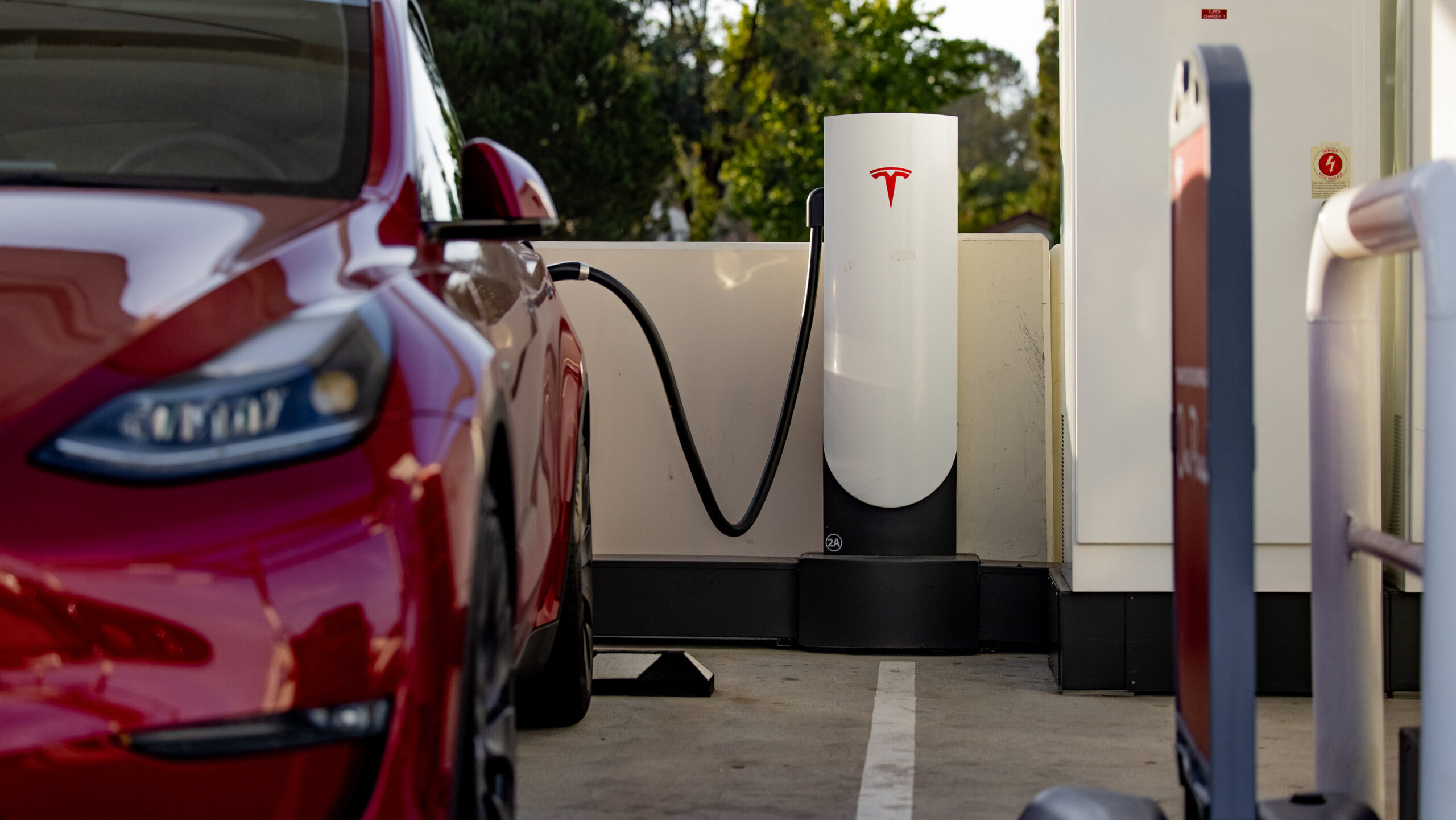
Is Charging a Tesla or Filling up a Gas Car Cheaper?
Electric vehicles are generally more economical than gas-powered cars. Charging a Tesla often proves to be much less expensive than fueling a gas car even with a Supercharger. Some Tesla owners potentially save $800 to $1,000 annually on fuel! Overall, the average cost to fully charge a Tesla is significantly lower than the recurring costs associated with gas vehicles, making Tesla a cost-effective choice in the long run.
Related Post: How Many Watts Does an Oven Use?
Cost to Charge a Tesla vs. Natural Gas FAQ

Q: What Maintenance Costs Can I Expect with a Tesla Compared to a Gas Car?
A: Teslas typically have lower maintenance costs due to fewer moving parts and no need for oil changes.
Q: Are There Any Incentives or Rebates for Installing a Tesla Home Charger?
A: Some regions offer incentives or rebates for EV charger installations; it’s best to check local programs.
Q: How Long Does It Take to Charge a Tesla at Home vs. a Supercharger?
A: Home charging can take several hours, while Superchargers can charge a Tesla to about 80% in around 30 minutes.
Q: What Is the Lifespan of a Tesla Battery, and How Does It Affect Long-term Costs?
A: Tesla batteries are designed to last many years, with a gradual decline in range over time, affecting long-term costs minimally.
Q: Can I Charge My Tesla with Solar Power, and How Does This Affect Cost?
A: Yes, charging with solar power can reduce costs further, depending on the solar setup and energy production.
Do you Need Cheaper Electricity?
If you’ve taken the time to understand the information on your bill and discovered you’re paying more than you’d like for your electricity, have you looked around for a cheaper deal? The Energy Professor has a wealth of information on ways to save on your utilities, including details of top deals that could significantly reduce your monthly or quarterly electricity bills.
We hope you found this article helpful! If you are looking for ways to increase energy efficiency and sustainability in your home be sure to take a look at all of the latest renewable energy options in your area. The Energy Professor helps residential and small business owners find qualified energy suppliers in New York, New Jersey, Pennsylvania, Texas, Ohio, Maryland, Illinois, and Massachusetts.

